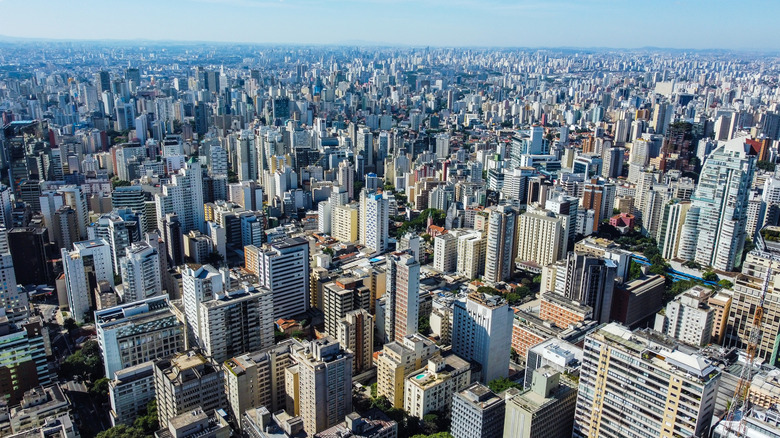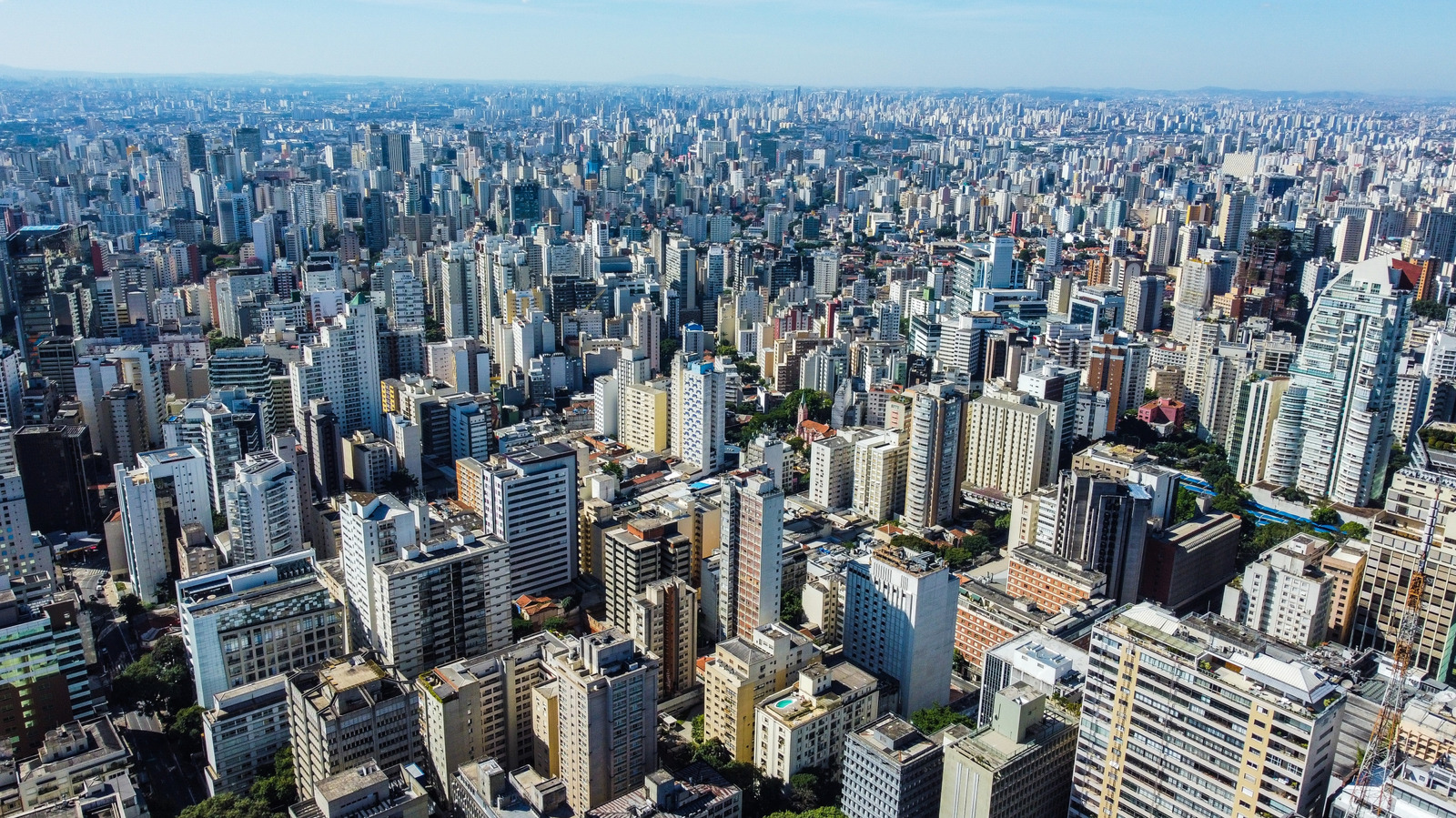 rafaelnlins/Shutterstock
rafaelnlins/Shutterstock
In the modern age of travel, people expect to get where they need to go fast. This includes traveling by train, especially bullet trains, which can reach incredible speeds. If you live in Brazil, you'll eventually be able to take the country's first ever bullet train, capable of maxing out at a blistering speed of 320 kilometers per hour, or 199 miles per hour.
To put that speed in perspective, if you're traveling from Rio de Janeiro to São Paulo today, you'll be driving or taking the bus, and it's about a 6-hour ride. But Brazil's new train will take you the same distance in under two hours. The bullet train will be on par with those currently running in other countries, including France and Japan, which have some of the fastest high-speed trains in operation today. However, Brazil's train will be slower than the one tested in China in the fall of 2025. That high-speed train, a next generation model of the CR450, hit a top speed of 281 miles per hour.
Spearheaded by the company TAV Brazil, the route from Rio de Janeiro to São Paulo will cover 417 kilometers, or around 219 miles, with stops along the way in Volta Redonda and São José dos Campos. The electrified trains will run on a dedicated railway, guided by the same high-tech signaling system currently used in countries like Spain. Required environmental and technical studies are being conducted and are set for completion in late 2026.
Brazil's first bullet train comes with controversy
 muratart/Shutterstock
muratart/Shutterstock
As of this writing, construction on Brazil's new bullet train project has not yet begun. But if everything proceeds on schedule, trains should be howling down the tracks sometime in 2032. Once the trains are operational, they should ease the burden on the country's congested highways and airports. While that's a plus for people traveling inside the country, the project isn't without controversy.
First there's the cost, which is expected be around $11.3 billion in U.S. dollars. Though it is a privately funded effort, the money will come from fundraising. So if there's not enough money collected, then the project could hit a wall. Even if the money's there and the bullet train becomes a reality, high ticket prices could keep many Brazilians either on the highway or in the air. Early projections estimate that tickets could go as high as $94. The question of capacity is also unknown, as TAV Brazil, the company behind the project, hasn't released those numbers.
The issue becomes even more complicated when looking at bullet trains in other countries like China, which has the most high-speed rail mileage in the world. China's system has faced enormous deficits and eventually required government money to keep going. It was so bad that revenue collected from people riding the train typically didn't go toward the principal debt, but the interest only. Whether or not Brazil's bullet trains will experience the same problems remains to be seen.




